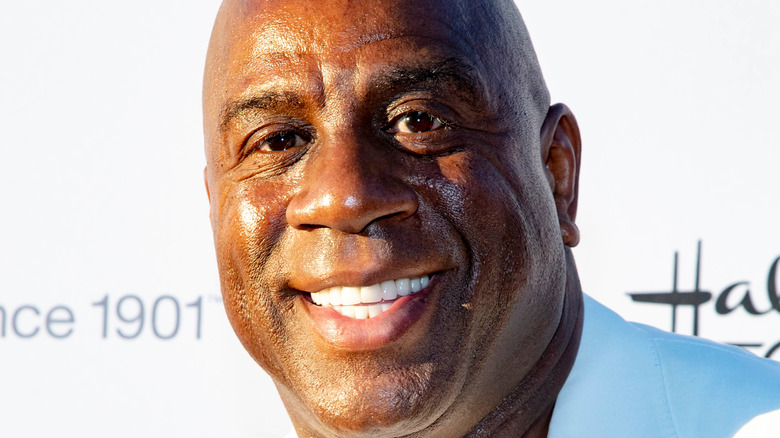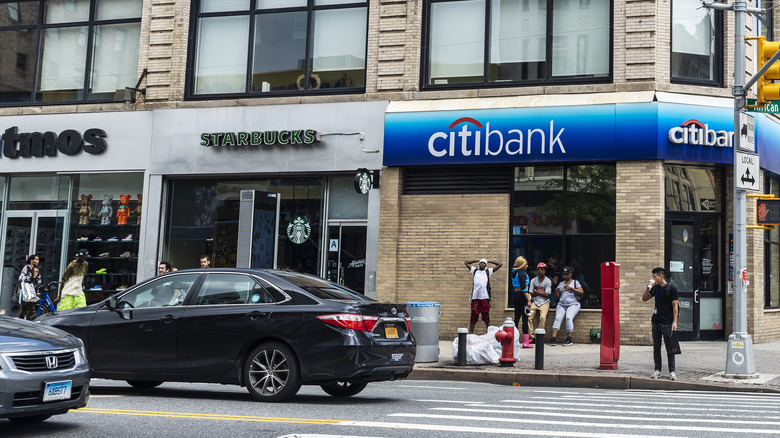Starbucks' Partnership With Magic Johnson Paved The Way For Community Stores
Whether you need a quick pick-me-up or a fast Wi-Fi connection, it seems you are never too far away from a Starbucks café no matter where you go in the U.S. While the coffee mega-chain now seems ubiquitous in American cities and suburbs, the spread of the brand may have looked entirely different if it hadn't been for one influential early investor.
As the Seattle-based chain was first starting to experience massive growth in the 1990s, moving from a few hundred stores to over 2,000, Starbucks notes it did not have a presence in underserved, urban communities. That is until former Los Angeles Lakers star and NBA MVP Earvin "Magic" Johnson approached then-CEO Howard Schultz with a business proposal in 1998.
Johnson had been retired from basketball for several years due to his battle with HIV and had been focusing on business investments and philanthropic work, and NBC News reports he approached Schultz with a plan to bring Starbucks stores to inner city neighborhoods. As Johnson tells it, Schultz was initially unconvinced until the future hall-of-famer brought him to a movie screening at one of the inner city movie theaters his company, Magic Johnson Enterprises, had opened. Apparently convinced that Johnson understood the market they would be entering, Starbucks went into business with the basketball legend, whose company's partnership eventually led to the construction of 125 cafés in city neighborhoods like Harlem, New York and Crenshaw in Los Angeles, which would eventually become some of Starbucks' Community Stores.
Community Stores going global
At the start of his partnership with Starbucks, which led to the creation of the Urban Coffee Opportunities organization, Johnson told NBC News that he saw companies were overlooking the buying power of Black and Hispanic communities, and as a result, these communities were being underserved.
"Through our partnership with Starbucks, we were able to serve as an economic catalyst in urban cities through the creation of new jobs, use of local suppliers, support for community-based organizations, and by attracting other retailers to the area," Johnson says on the UCO page of Starbucks' website.
Although Johnson sold his stake in the Starbucks stores in 2010, earning himself $100 million in the process, the legacy of the partnership lives on in Starbucks' Community Stores. According to Starbucks, these cafés are located in low-income and other vulnerable communities in the inner city and rural areas and partner with local nonprofits to provide services, facilities, and resources to their employees and neighborhoods. There are already over 150 Community Stores around the world, and in 2022, Starbucks announced plans to open another 1,000 by 2030 as part of its efforts to be a "People Positive" company.

